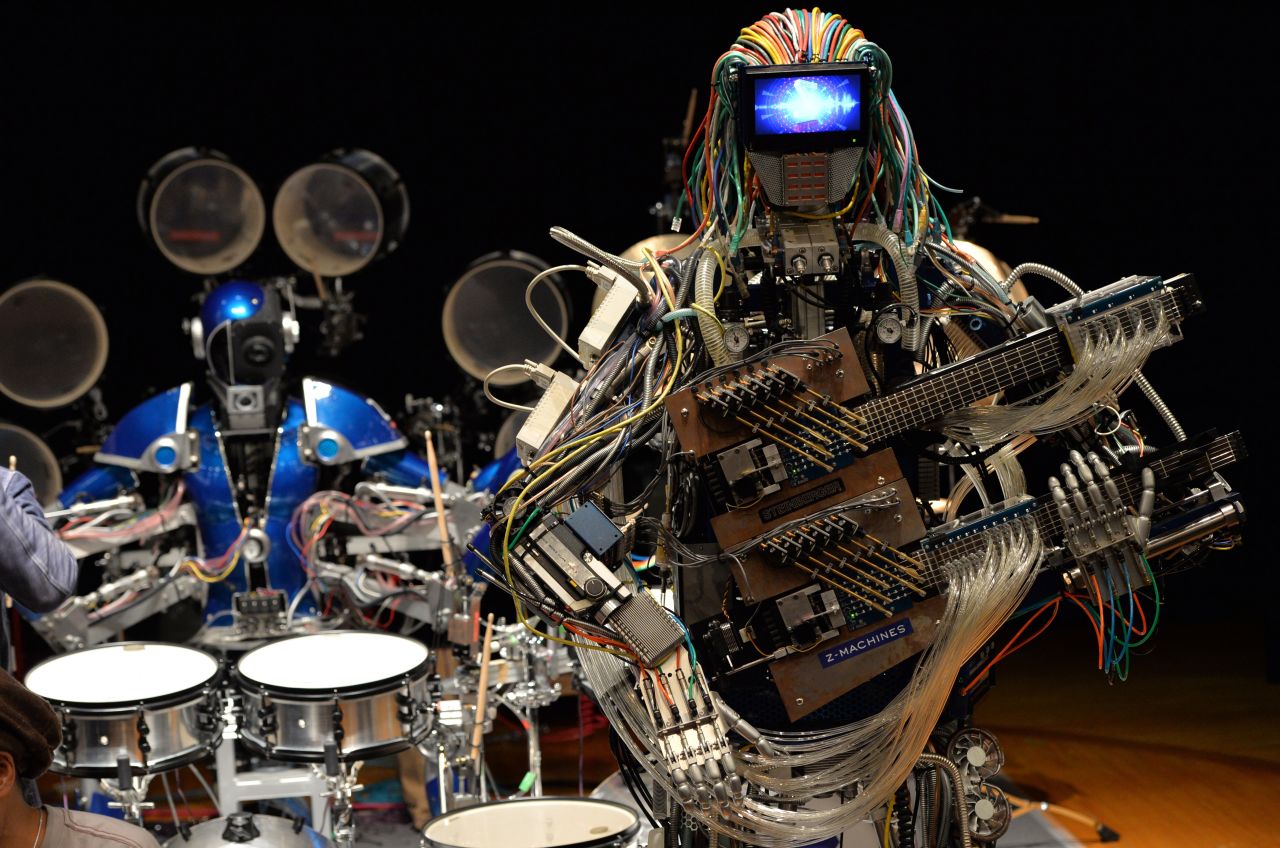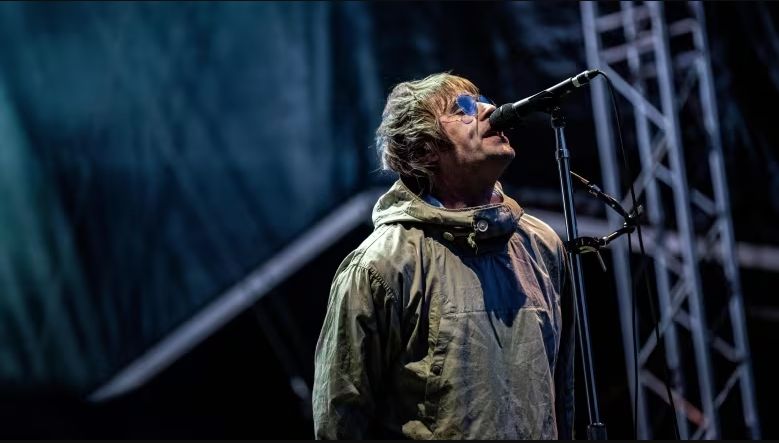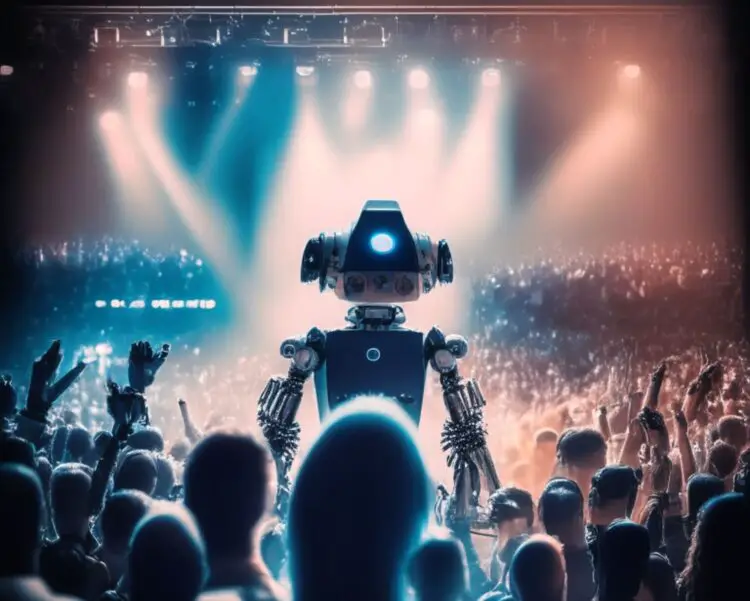Explore the world of AI singers, as artists and the music industry face new challenges in copyright, creativity, and the future of sound.
In 2021, a group of five musicians from Hastings, England, identified a gap in the market. According to guitarist Chris Woodgates, there was a lack of “massive rock bands producing huge, catchy, stadium-worthy anthems.” Thus, they formed a band called Breezer and began recording. Although their friends compared their sound to Oasis, the band failed to achieve the expected level of success. Ultimately, they played their final live show the following summer.
However, a strange turn of events occurred when frontman Bobby Geraghty discovered videos on YouTube where AI software was used to mimic Liam Gallagher’s voice, replacing the original vocals in Oasis songs. Amazed by the technology, watched a tutorial on software and Geraghty experimented with the software and replaced his vocals in eight Breezer tracks with an AI-generated version of Liam’s voice. The tracks, uploaded under the name AISIS, were promoted as an “alternate-reality concept album” featuring Oasis’s classic mid-’90s lineup.

AI singers rising
The AISIS project quickly gained popularity, amassing 300,000 streams within a week. The success of this project overshadowed the release of a new single by Noel Gallagher’s current band, the High Flying Birds. Geraghty believes that the viral success was due to the public’s interest in AI rather than a negative reflection on the quality of Noel’s music. Even Liam himself approved. “It’s better than all the other snizzle out there,” he tweeted. “I sound mega.”
Two months prior, AI voice-cloning technology was virtually non-existent. Now, it forces the music industry to confront complex questions about artists’ rights to their own voices and whether human pop stars are still necessary. Breezer’s story is becoming increasingly common, with AI voice clones/AI singers appearing in various songs and collaborations.
Examples of this trend include DJ David Guetta’s use of an AI-generated Eminem sample, an AI Jay-Z verse in AllttA’s “Savages,” and the anonymously-produced “Heart on My Sleeve,” which features AI-generated vocals of Drake and the Weeknd. In response to this growing trend, major labels have attempted to discourage the use of AI-generated vocals, but their efforts have largely been unsuccessful.
The technology behind these AI-generated vocals, SoftVC VITS Singing Voice Conversion (So-Vits-SVC), is free, open-source, and can be used on any computer with a decent GPU. While it initially required coding ability, updated versions have made the software increasingly user-friendly. To create an AI model of a singer, users simply input 20-30 minutes of high-quality a cappella audio and wait for the software to generate the model. Websites exist now that will automate the majority of the procedure for you if all you want to do is make a simple cover song.
Despite the rapid advancements in AI singers, there are still limitations. The technology works best when the AI clone has a similar vocal range to the original singer, and it is currently unable to handle multiple voices or complex harmonies. Additionally, AI-generated music still requires human input for writing lyrics and melodies.
As generative AI continues to advance, the music industry faces a range of legal and ethical challenges. The courts have yet to determine whether AI-generated content infringes on copyright or publicity rights. Entertainment lawyer Jason Boyarski suggests that the industry must find a way to embrace and monetize this technology to benefit artists whose voices are being used.

AI singers creating more opportunities
In light of these developments, some artists, like Grimes, have announced plans to share royalties for hit songs featuring their AI-generated voices. This approach could create new opportunities for unknown talents and even the estates of deceased artists. However, the widespread use of AI-generated vocals may also lead to an overwhelming abundance of music that no fan could ever fully consume.
Interestingly, AI-generated vocals may also provide a solution to the age-old problem of vocal changes in artists over time. For instance, Liam Gallagher recently turned 50, and his voice has become deeper and more coarse on newer albums compared to Oasis’s early years. This change can be attributed to a thyroid condition and years of vocal strain. In a 2017 interview, he mentioned the difficulty of maintaining his voice during consecutive shows. With AI-generated vocals, artists like Liam Gallagher can now rely on a backup, preserving the quality of their iconic sound for future generations to enjoy.
As AI-generated vocals become increasingly prevalent in the music industry, it raises questions about the future of human artists and their rights. While some artists may embrace the technology, others might fight to protect their unique voices and creative output. As the industry struggles to adapt, it remains to be seen how AI will ultimately shape the future of music.





